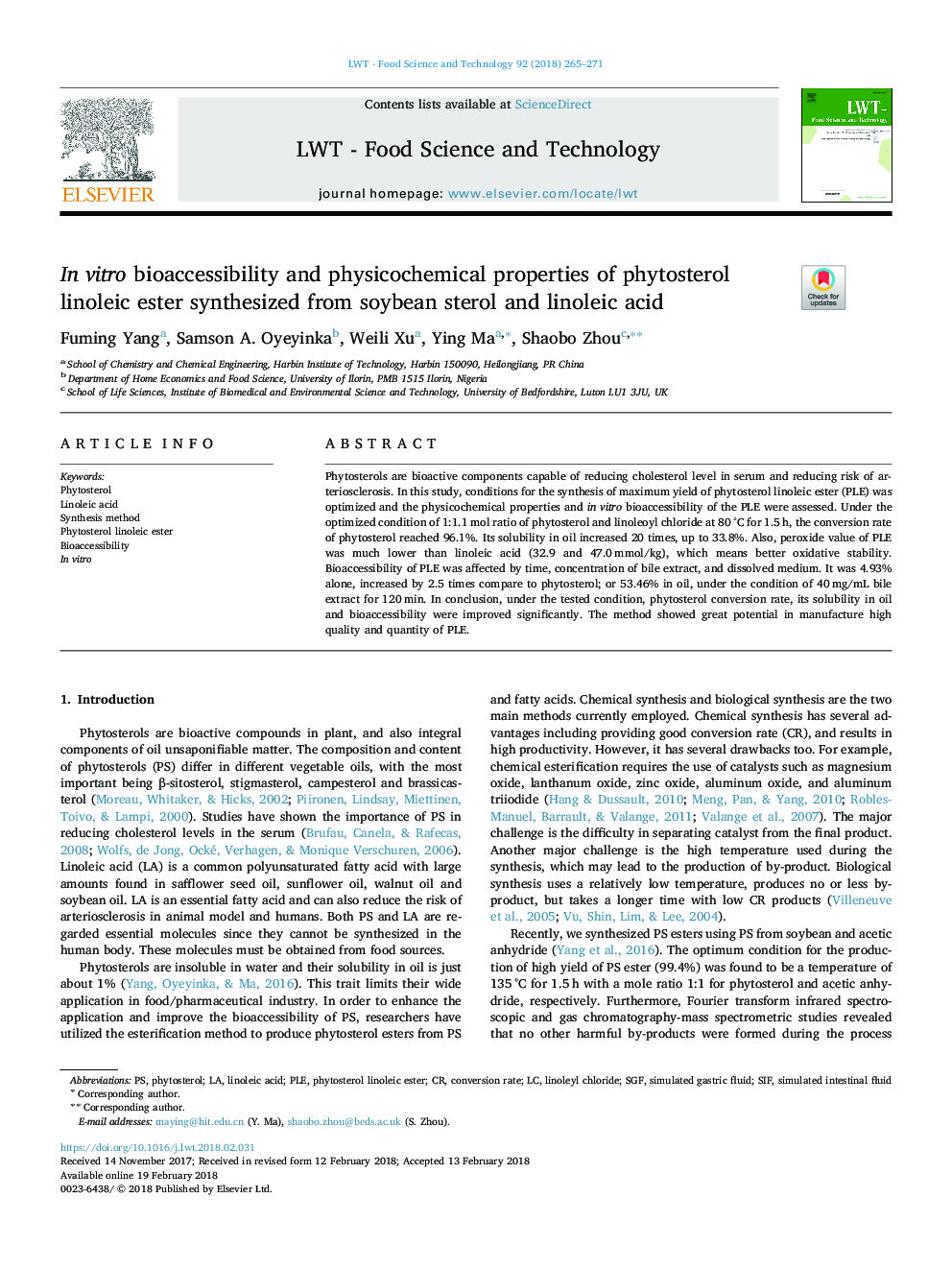| Article ID | Journal | Published Year | Pages | File Type |
|---|---|---|---|---|
| 8891265 | LWT - Food Science and Technology | 2018 | 7 Pages |
Abstract
Phytosterols are bioactive components capable of reducing cholesterol level in serum and reducing risk of arteriosclerosis. In this study, conditions for the synthesis of maximum yield of phytosterol linoleic ester (PLE) was optimized and the physicochemical properties and in vitro bioaccessibility of the PLE were assessed. Under the optimized condition of 1:1.1â¯mol ratio of phytosterol and linoleoyl chloride at 80â¯Â°C for 1.5â¯h, the conversion rate of phytosterol reached 96.1%. Its solubility in oil increased 20 times, up to 33.8%. Also, peroxide value of PLE was much lower than linoleic acid (32.9 and 47.0â¯mmol/kg), which means better oxidative stability. Bioaccessibility of PLE was affected by time, concentration of bile extract, and dissolved medium. It was 4.93% alone, increased by 2.5 times compare to phytosterol; or 53.46% in oil, under the condition of 40â¯mg/mL bile extract for 120â¯min. In conclusion, under the tested condition, phytosterol conversion rate, its solubility in oil and bioaccessibility were improved significantly. The method showed great potential in manufacture high quality and quantity of PLE.
Related Topics
Life Sciences
Agricultural and Biological Sciences
Food Science
Authors
Fuming Yang, Samson A. Oyeyinka, Weili Xu, Ying Ma, Shaobo Zhou,
